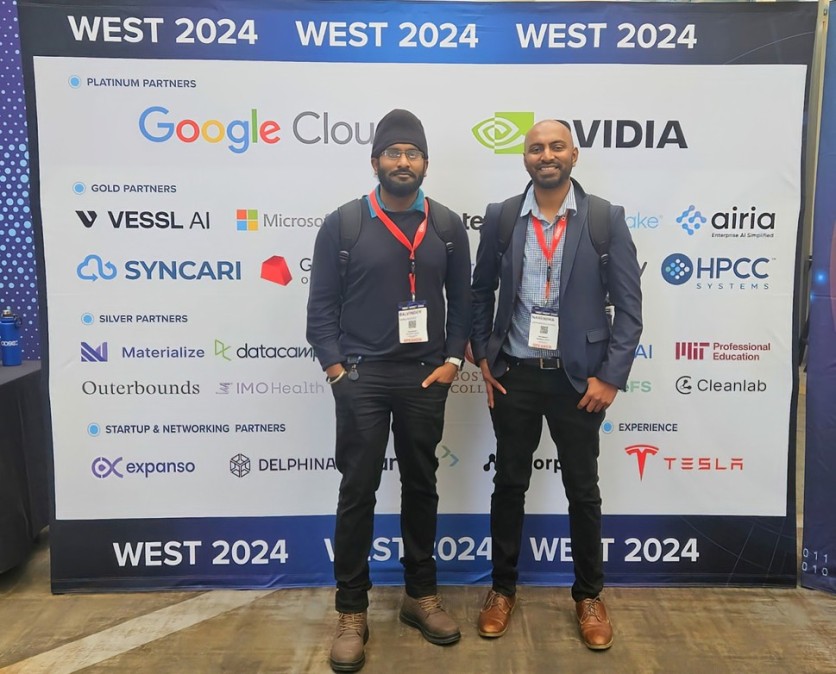
By 2026, more than 85% of enterprises will have adopted software platforms as a core part of their digital strategy. The question is: How can companies build scalable, efficient systems?
Software platforms centralize essential services, enabling businesses to reduce costs, accelerate product delivery, and improve system reliability. These are all critical to enhancing the customer experience. However, building and managing these platforms comes with challenges. The rise of microservices architecture and domain-driven design has introduced integration complexities that can slow deployment and impact performance. To maximize the potential of software platforms, businesses need a structured, strategic approach.
At the ODSC Conference, software platform specialists Balvinder Singh Banjardar and Narendra Lakshmana Gowda shared key insights on scalable architectures, integration hurdles, and the role of AI-driven cloud technologies in platform development.
The Role of Software Platforms in Business Strategy
Software platforms form the foundation of modern digital enterprises by centralizing key services and standardizing operations. Instead of rebuilding infrastructure for each product, companies can leverage scalable frameworks and tools to speed up development while ensuring consistency across their digital ecosystem.
Beyond development, platforms enhance system reliability and improve operational efficiency by enabling seamless integration across products and services. A well-structured platform empowers businesses to scale quickly, respond to market demands, and eliminate redundancies. This helps foster long-term competitiveness and adaptability.
Key Challenges: Navigating Platform Development
While software platforms offer clear benefits, their implementation presents critical challenges that businesses must address:
- Siloed Development and Integration Issues: Independent teams often build solutions in isolation, leading to misaligned services, inefficient workflows, and increased maintenance costs.
- Complexity in Microservices: Microservices architectures break systems into smaller, independently deployable components, improving flexibility. However, without proper standardization, misaligned interfaces, inconsistent data ownership, and system bottlenecks can hinder performance.
- Balancing Speed and Stability: Organizations prioritize rapid feature rollouts, sometimes at the expense of long-term platform stability. Neglecting integration best practices can result in system failures, security vulnerabilities, and technical debt that slow future progress.
Strategic Solutions: Building Scalable Platforms
According to Balvinder Singh Banjardar, businesses must adopt a long-term, structured approach to platform development. His experience in enterprise-scale IT transformation, architecture design, and business optimization provides key strategies for navigating platform challenges.
- Define Clear Service Boundaries with Domain-Driven Design (DDD): Establishing structured service ownership prevents misaligned integrations. DDD enables better coordination among teams, ensuring long-term scalability.
- Platform-First Approach: Prioritizing platform stability over rapid feature deployment ensures seamless integration and long-term efficiency while preventing costly rework.
- Standardize Development Practices and API Design: Enforcing consistent API design, security measures, and governance frameworks enhances scalability, maintainability, and security.
- Automate Testing and Continuous Integration (CI/CD): Automated testing and CI pipelines detect integration issues early, reducing deployment failures and system-wide disruptions.
- Enhance Observability and System Monitoring: Utilizing real-time monitoring tools allows businesses to track system performance, detect inefficiencies, and prevent failures before they escalate.
- Improve Effort Estimation and Enterprise IT Strategy: Banjardar's expertise in effort estimation, proof-of-concepts (POCs), and RFP/RFI documentation has helped organizations optimize IT planning and execution.
"A well-structured enterprise platform isn't just an advantage—it's a necessity," Banjardar explains. "Businesses must build architectures that evolve with their digital needs while ensuring seamless integrations at scale."
The Business Impact: Cost Savings, Faster Deployment, and Reliability
Investing in scalable, well-integrated software platforms delivers measurable benefits:
- Lower Operational Costs: This reduces infrastructure complexity and eliminates redundancies.
- Accelerated Product Deployment: A stable platform removes development bottlenecks, allowing teams to focus on innovation.
- Improved System Reliability: Stronger integration frameworks prevent downtime and enhance security.
- Better Customer Experience: Reliable platforms support faster updates and a consistent user experience.
As AI-driven automation, cloud computing, and real-time analytics continue to advance, software platforms will become even more critical to enterprise IT strategy. Companies that invest in flexible, scalable architectures today will be better positioned to handle emerging technologies and evolving customer demands. By focusing on automation, security, and long-term platform stability, organizations can future-proof their IT infrastructure, drive innovation, and sustain business growth.
About Narendra Lakshmana Gowda and Balvinder Singh Banjardar
Narendra Lakshmana Gowda specializes in scaling distributed platforms, particularly in retail and e-commerce technology. His work has contributed to enhancing system efficiency and resilience for major enterprises worldwide. Balvinder Singh Banjardar is a leader in enterprise software architecture and IT consulting, with experience spanning Fortune 500 organizations such as Walmart Global Tech, USPTO, CGI, ADP, Deloitte, and ARAMCO. His expertise in software engineering leadership, enterprise modernization, and IT transformation has played a key role in shaping global technology initiatives. His professional achievements include a 2024 Global Recognition Award, the International Achievers Award by IAF India, and a Technology Impact & Excellence Award.
![Apple Watch Series 10 [GPS 42mm]](https://d.techtimes.com/en/full/453899/apple-watch-series-10-gps-42mm.jpg?w=184&h=103&f=9fb3c2ea2db928c663d1d2eadbcb3e52)



